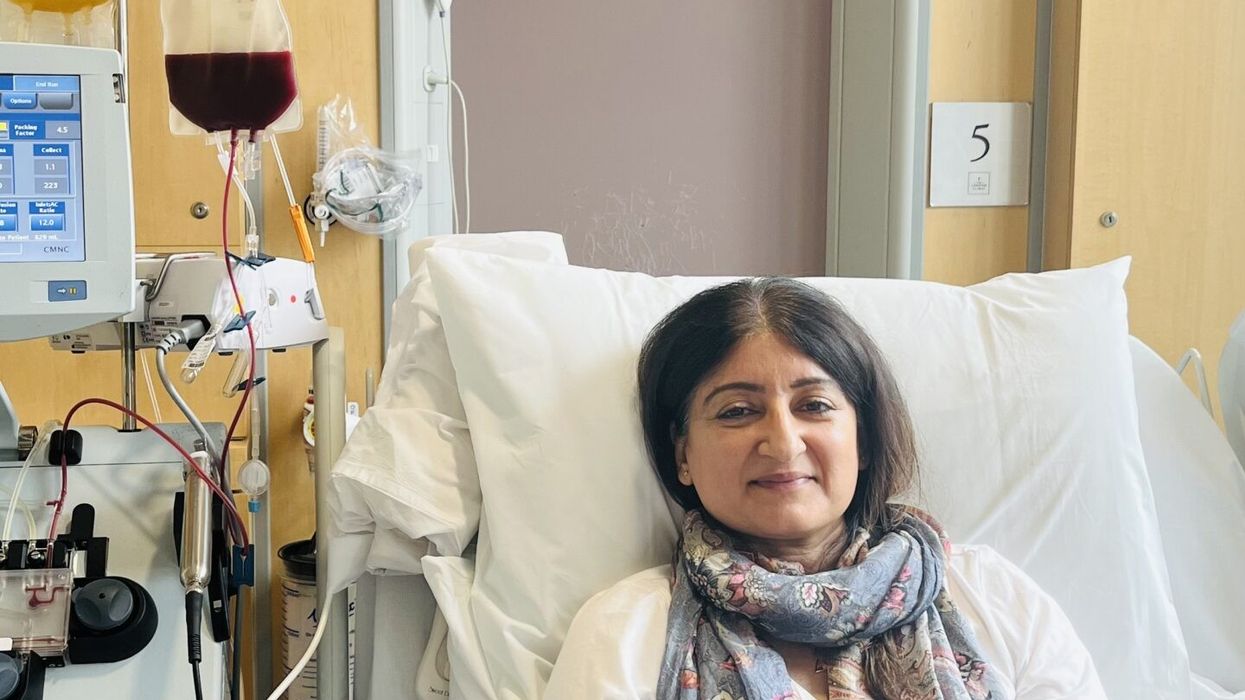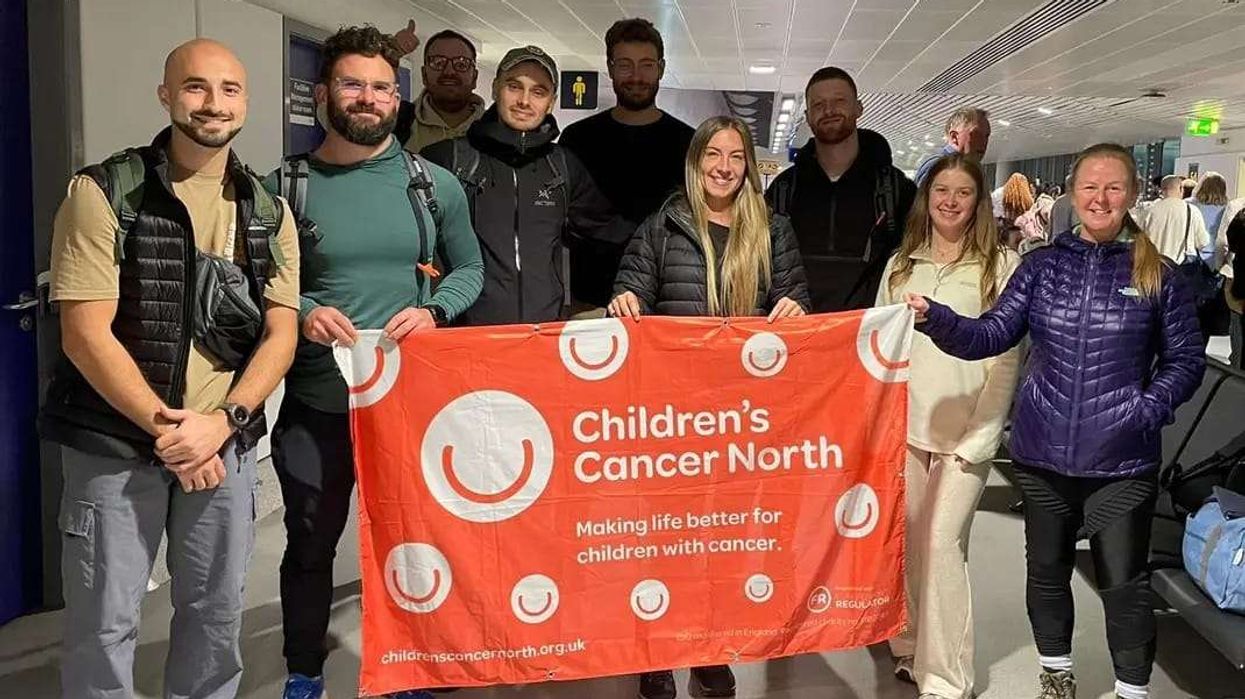In the UK, there is a significant gap in the stem cell donor register, particularly among people of south Asian heritage.
This under-representation means that patients from these communities face much lower chances of finding a life-saving match if they require a stem cell transplant. DKMS, a leading blood cancer charity, is working to close this gap by encouraging more people to join the stem cell register.
Kamaljit Bola, from the West Midlands, is one of those who answered the call and shared her inspiring journey.
MY NAME is Kamaljit Bola, but everyone knows me as Kam. I’m a married mother of two boys, who are now young men.
My journey with stem cell donation began five years ago, motivated by a deeply personal experience. As the mother of a child with a lifelong rare blood disorder, I understand the desire for your child to live a ‘normal life’. For us, ‘normal’ has meant monthly red blood transfusions for the past 20 years.
When Rajan was around 14 months old, our world was turned upside down. After numerous tests and appointments, a bone marrow test confirmed that he had sideroblastic anaemia – a rare condition where his red blood cells remain dormant in his bone marrow and do not oxygenate properly. From the outset, doctors searched the stem cell donor registry for a match that could save his life, but despite years of waiting, we are still hoping to find one.
Receiving this diagnosis as young parents was overwhelming – we didn’t know how to handle it. We were responsible for this precious life, but his condition was beyond our control. Telling our families was also difficult; our parents didn’t fully understand what it meant at the time. For a long time, we went through the motions, feeling numb and stressed. Our older son, Arran, needed us too, and I tried to balance everything, although it often felt consuming.
Joining the stem cell donor register through blood cancer charity DKMS was a deeply empathetic decision.
As the parent of a sick child, you understand how valuable donors of any kind are. I’m eternally grateful to blood donors because, without them, Rajan – who has now had over 228 blood transfusions – wouldn’t be alive today.
I often remind Rajan that just like his rare condition, he is unique and precious, like a diamond. He is strong, resilient, and always optimistic. Rajan also has autism, so he sees the world through his own lens, with different developmental needs.
We don’t know if he’ll ever work, but that’s okay. He is passionate about boxing and Formula 1 – his heroes are Anthony Joshua and Lewis Hamilton. We focus on his passions, taking him to live boxing events and attending the Grand Prix because I know how precious life is. Tomorrow is never guaranteed, so I try to live each day fully.
I urge everyone to join the stem cell donor register – you never know who you might help. Registering starts with a simple mouth swab and providing some personal details – it’s painless. In our community, people often believe personal struggles should remain private.
I know many suffer in silence; I did too. I couldn’t fully express the pain and helplessness I felt for my son. I was told not to worry, to visit the Gurdwara, and that everything would be okay. During this time, I found strength in prayer and optimism, determined to do everything possible for Rajan.
Bola with her sons Rajan and ArranThis year, something extraordinary happened. In February, DKMS contacted me to say I was a potential match for someone and asked if I was still willing to donate. Of course, I said yes. After a blood test at my local hospital, I was told in April that I was indeed a match. DKMS organised my medical appointments and donation date – the whole experience felt surreal. It felt like karma, as though searching for a donor for my son led me to save someone else. I know the recipient is male and lives in North America – this was shared with me after the donation.
The process was explained clearly, and I felt well-prepared. I took a series of injections to stimulate my stem cells before the donation, and Arran, a qualified pharmacist, administered them. The symptoms were intense, but I reminded myself that the recipient was going through something far worse, preparing for the transplant with chemotherapy.
I also thought of Rajan, who told me he was proud of me. He even wanted pictures of me being cannulated (a small tube put into your vein), as he experiences the same procedure every month. The donation itself was emotional, and I had to hold back tears several times.
I donated through apheresis, or peripheral blood stem cell (PBSC) collection, where stem cells were collected from one arm while blood was returned through the other. The processtook place over two days, with each session lasting around five hours. The clinic staff made me feel comfortable, and the aftercare was excellent – I felt truly looked after.
If you’ve ever considered joining the stem cell register but haven’t, I hope my story inspires you to take that step. If you aren’t familiar with DKMS, I encourage you to learn more about their incredible work. Their mission to get as many people on the register as possible is truly life-saving. I am humbled to have been a donor and continue to hope that one day, Rajan won’t need monthly transfusions. You never know who might be waiting for you to save their life.
For more information and to order your free swab visit dkms.org.uk












